Rosh Ha Shana
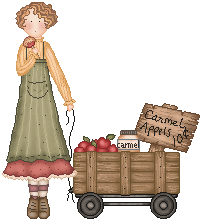 
This year Rosh ha Shana will be on September 16 and 17.
Shana tova!

Rosh Hashanah occurs on the first and second day of Tishri. In Hebrew, Rosh Hashanah means, literally, "head of the year" or "first of the year." Rosh Hashanah is commonly known as the Jewish New Year. Rosh Hashanah is one of the holiest days of the year.
  
The Jewish New Year is a time to begin introspection, looking back at the mistakes of the past year and planning the changes to make in the new year.
 
The name "Rosh Hashanah" is not used in the Bible to
discuss this holiday. The Bible refers to the holiday as Yom Ha Zikkaron (the day of remembrance) or Yom Teruah (the day of the sounding of the shofar). The holiday is instituted in Leviticus 23:24-25.

The shofar is a ram's horn which is blown somewhat like a trumpet. One of the most important observances of this holiday is hearing the sounding of the shofar in the synagogue. A total of 100 notes are sounded each day. There are four different types of shofar notes: tekiah, a 3 second sustained note; shevarim,
three 1-second notes rising in tone, teruah, a series of short, staccato notes extending over a period of about 3 seconds; and tekiah gedolah (literally, "big tekiah"), the final blast in a set, which lasts 10 seconds minimum. The Bible gives no specific reason for this practice. One that has been suggested is that the shofar's sound is a call to repentance. The shofar is not blown if
the holiday falls on Shabbat.
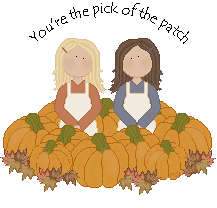
No work is permitted on Rosh Hashanah. Much of the day is spent in synagogue, where the regular daily liturgy is somewhat expanded. In fact, there is a special prayerbook called the machzor used for Rosh Hashanah and Yom Kippur because of the extensive liturgical changes for these holidays.
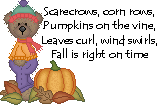
Another popular observance during this holiday is eating apples dipped in honey, a symbol of our wish for a sweet new year. Also bread is dipped in honey (instead of the usual practice of sprinkling salt on it) at this time of year for the same reason.

Another popular practice of the holiday is Tashlich ("casting off"). We walk to flowing water, such as a creek or river, on the afternoon of the first day and empty our pockets into the river, symbolically casting off our sins. This practice is not discussed in the Bible, but is a long-standing custom.
  
SUGGESTIONS FOR TASHLICH *Ü*
Taking a few crumbs to Tashlich from whatever old bread is in the house lacks subtlety, nuance and religious sensitivity. Instead, this coming Rosh Hashana consider these
options:
For ordinary sins, use White Bread
For exotic sins, French Bread
For particularly dark sins, Pumpernickel
For complex sins, Multi-grain
For twisted sins, Pretzels
For tasteless sins, Rice Cakes
For sins of indecision, Waffles
For sins committed in haste, Matzah
For sins committed in less than eighteen minutes, Shmurah Matzah
For sins of chutzpah, Fresh Bread
For substance abuse, Poppy Seed
For committing arson, Toast
For committing auto theft, Caraway
For being ill tempered, Sourdough
For silliness, Nut Bread
For not giving full value, Shortbread
For jingoism, Yankee Doodles
For excessive use of irony, Rye Bread
For telling bad jokes, Corn Bread
For hardening our hearts, Jelly doughnuts
For being money hungry, Enriched Bread or Raw Dough
For war-mongering, Kaiser Rolls
For immodest dressing, Tarts
For causing injury or damage to others, Tortes
For promiscuity, Hot Buns
For racism, Crackers
For sophisticated racism, Ritz Crackers
For davvening off tune, Flat Bread
For being holier than thou, Bagels
For unfairly upbraiding another, Challah
For indecent photography, Cheese Cake
For trashing the environment, Dumplings
For sins of laziness, Any Very Long Loaf
For sins of pride, Puff Pastry
For lying, Baked Goods with Nutrasweet and Olestra
For wearing tasteless hats, Tam Tams
For the sins of the righteous, Angel Food Cake
For selling your soul, Devils Food Cake
For lust in your heart, Wonder Bread
For inhaling, Stoned Wheat
Remember, you don't have to show your crumbs to anyone.
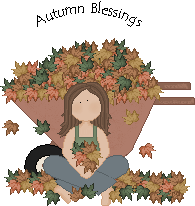
Religious services for the holiday focus on the concept of G-d's sovereignty.

The common greeting at this time is L'shanah tovah ("for a good year"). This is a shortening of "L'shanah tovah tikatev v'taihatem" (or to women, "L'shanah tovah tikatevi v'taihatemi"), which means "May you be inscribed and sealed for a good year."
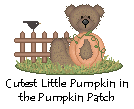
You may notice that the Bible speaks of Rosh Hashanah as occurring on the first day of the seventh month. The first month of the Jewish calendar is Nissan, occurring in March and April. Why, then, does the Jewish "new year" occur in Tishri, the seventh month?
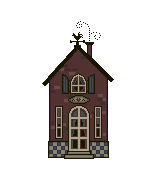
Judaism has several different "new years," a concept which may seem strange at first, but think of it this way: the American "new year" starts in January, but the new "school year" starts in September, and many businesses have "fiscal years" that start at various times of the year. In Judaism, Nissan 1 is the new year
for the purpose of counting the reign of kings and months on the calendar, Elul 1 (in August) is the new year for the tithing of animals, Shvat 15 (in February) is the new year for trees (determining when first fruits can be eaten, etc.), and Tishri 1 (Rosh Hashanah) is the new year for years (when we increase the year number. Sabbatical and Jubilee years begin at this time).

Visit another great website on Rosh Ha Shana: Click here.
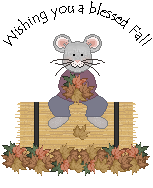
Dear Member,
During the last holiday season, many individuals expressed concern over the seating arrangements in the synagogue. In order for us to place you in a seat which will best suit you, we ask you to complete the following questionnaire and return it
to the synagogue office as soon as possible:
1.
I would prefer to
sit in the:
___ Talking section
___ No talking section
2.
If talking, which
subcategory do you prefer?
___ Stock market
___ My neighbors
___ Sports
___ My relatives
___ Medicine
___ The rabbi
___ General gossip
___ The cantor
___ Specific gossip
___ The gabbai
___ Fashion news
___ The Prime Minister
___ Sex
___ Other (Please Specify)
3.
Which of the
following would you like to be near so that you might receive free professional advice:
___ Lawyer
___ Accountant
___ Doctor
___ Stockbroker
___ Chiropractor
___ Real estate agent
___ Sexologist
___ Dentist
4.
I want a seat
located
___ near my in-laws
___ near the pulpit
___ far from my in-laws
___ near the Kiddish table
___ far from my ex-in-laws
___ near the exit
5.
I wish to be
seated in a seat where:
___ I can see my spouse over the mechitza (a curtain or wall separating men and women)
___ I cannot see my spouse over the mechitza
___ I can see my friend's spouse over the mechitza
___ My spouse cannot see me seeing my friend's spouse over the mechitza
___ No one on the bimah can see me talking during services
___ I can sleep during services
___ I can sleep during the rabbi's sermon [additional charge]
6.
Please do not
place me anywhere near the following people:
___________________________
___________________________
Your name: __________________
Phone number: _______________
|
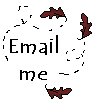
[ Jewish World ]
[ Home ] [ Site Map ] [
Guestbook ] [ Email ]
Text from Judaism 101
Graphics by:
Recycle Bin Graphics - Buttercup Graphics -
Country Patch Collections - Graphic Garden
   

  
 
|